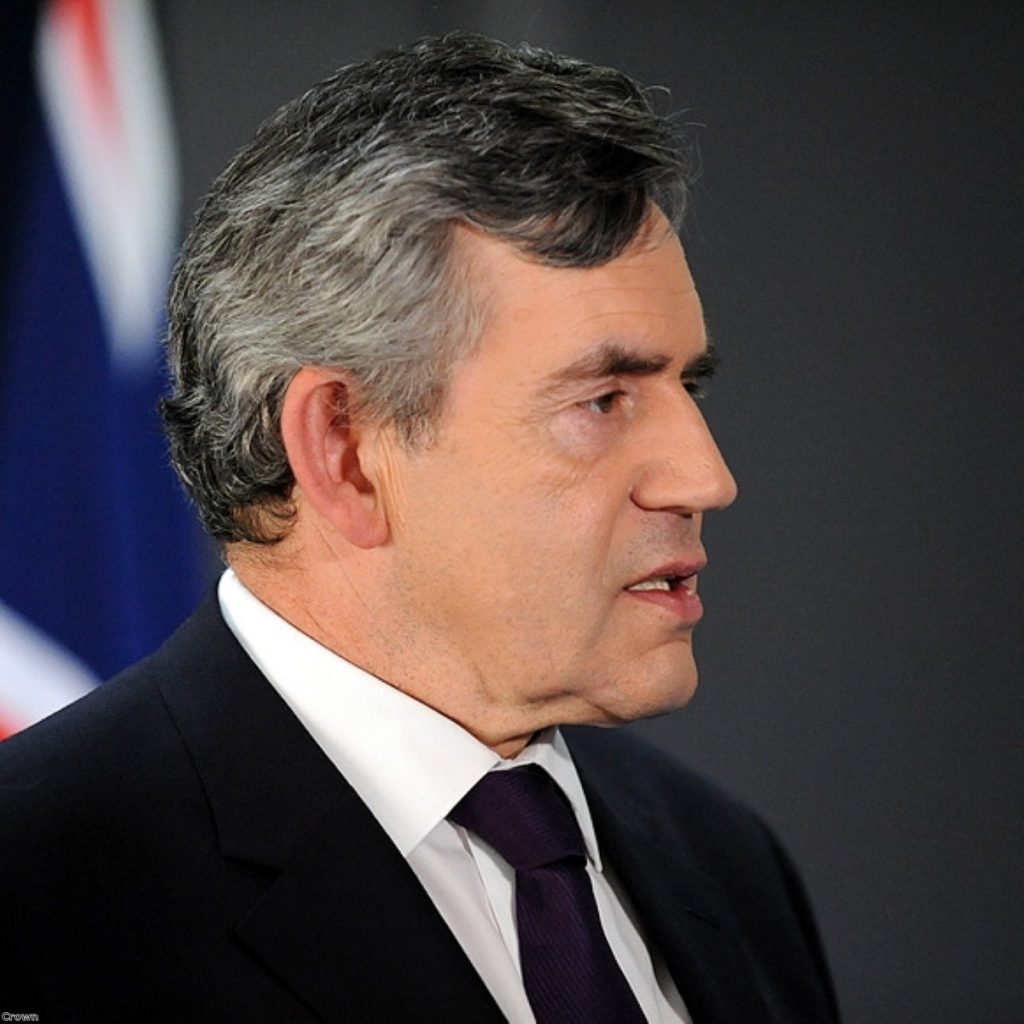Cameron dashes Brown’s IMF hopes
Gordon Brown’s hopes of becoming the next International Monetary Fund chief received a setback from David Cameron this morning.
His successor in No 10 said he thought Mr Brown “might not be the most appropriate person” to take over from Dominique Strauss-Kahn.
Mr Brown chaired the London G20 summit in which the world’s largest economies agreed to inject hundreds of billions of dollars to prevent the financial crash spiralling out of control.


But he recently admitted he had made a “big mistake” when setting up the UK’s tripartite financial regulation structures in the late 1990s, which were targeted against individual organisations rather than the more complex reality.
“I haven’t spent a huge amount of time thinking about this but if you have someone who didn’t think we had a debt problem in the UK, when we self-evidently do have a debt problem… they might not be the most appropriate person to work out whether other countries around the world have debt and deficit problems,” Mr Cameron told the Today programme this morning.
He did not rule out using a prime ministerial veto against his former political adversary but made clear his preference for an IMF head from outside the west.
“I certainly don’t want a washed-up politician from another country,” Mr Cameron added.
“It’s very important the IMF is led by someone extraordinarily competent and capable. It may well be when you think the IMF has got to be listened to and taken seriously by countries not just in the west but all over the world, it may well be its time to have a candidate from another part of the world in order to increase its standing in the world.”
The IMF is keen to focus on its new global monitoring role as the fragile worldwide recovery becomes more established.
“Above all what matters is the person running the IMF understands the dangers of excessive debt, excessive deficit,” Mr Cameron said.
“It really must be someone who gets that rather than someone who says they don’t see a problem.”
Labour leader Ed Miliband, who has been keen to distance himself from his successor’s policies, came to the defence of Mr Brown in response to Mr Cameron’s comments, however.
“It’s slightly jumping the gun, since there isn’t a vacancy at the IMF. To rule someone out before the vacancy has arisen seems to be going some, even for [David Cameron],” he said.
“Gordon Brown is an eminently qualified person for the job. I think that Gordon Brown’s record in relation to the financial crisis of 2007/8, when he made a huge difference to preventing recession becoming depression, was outstanding.”
Former monetary policy committee member David Blanchflower also rallied behind Mr Brown, as he said it could only be good for Britain to have an ex-prime minister leading a major international agency.
“This is the behaviour of a petty, narrow-minded, vindictive person who is putting his own, and his party’s interests ahead of the nation’s,” he commented.












